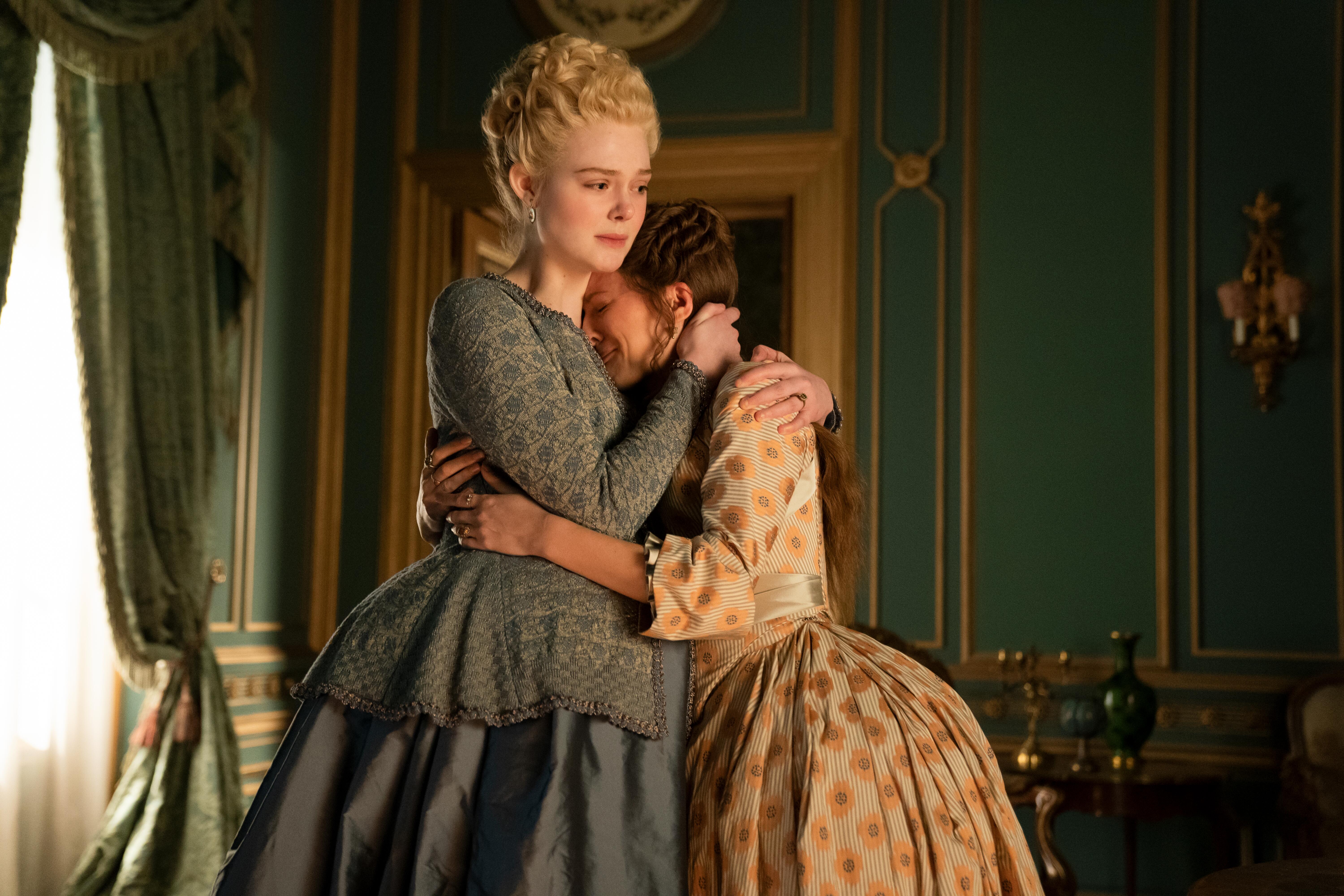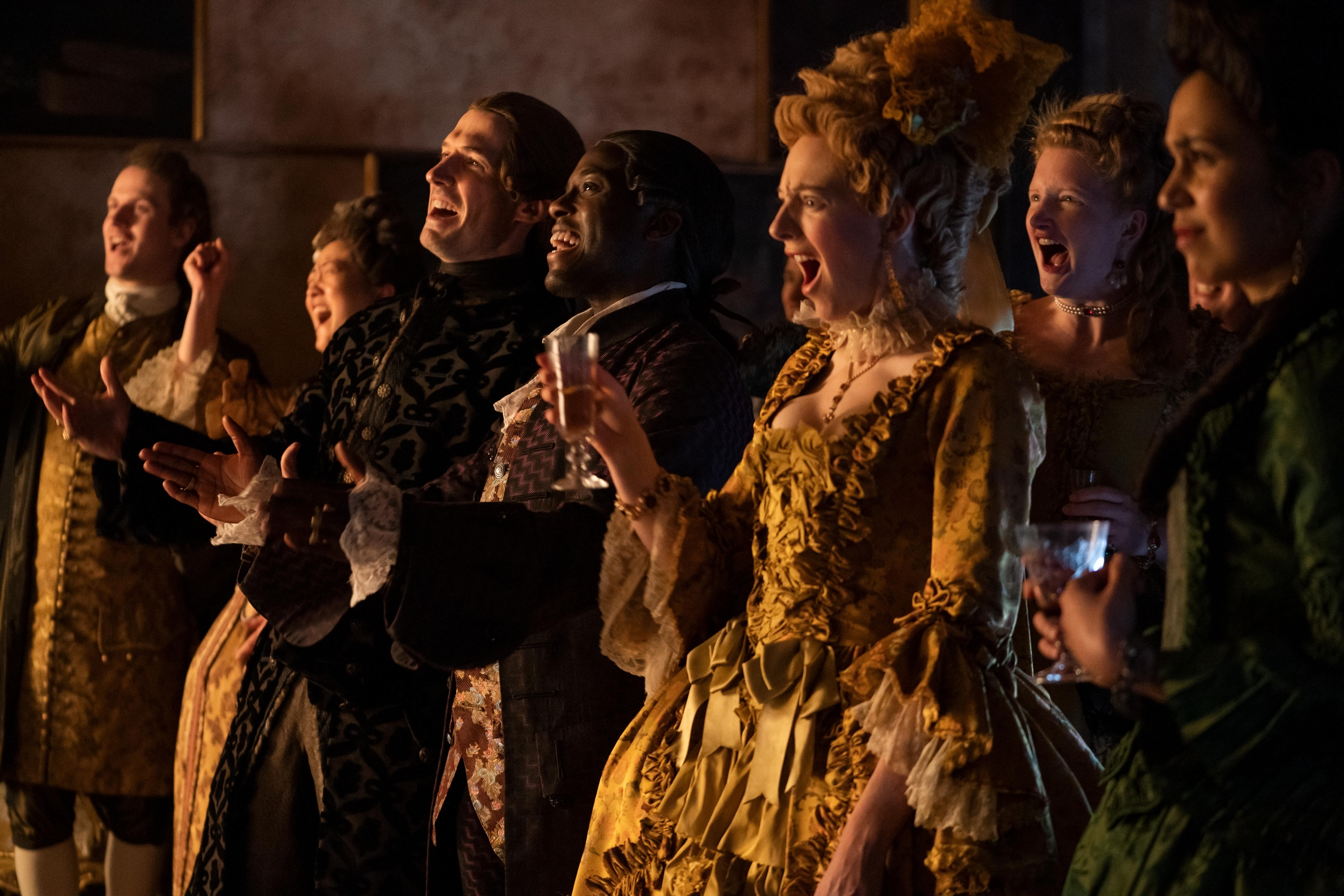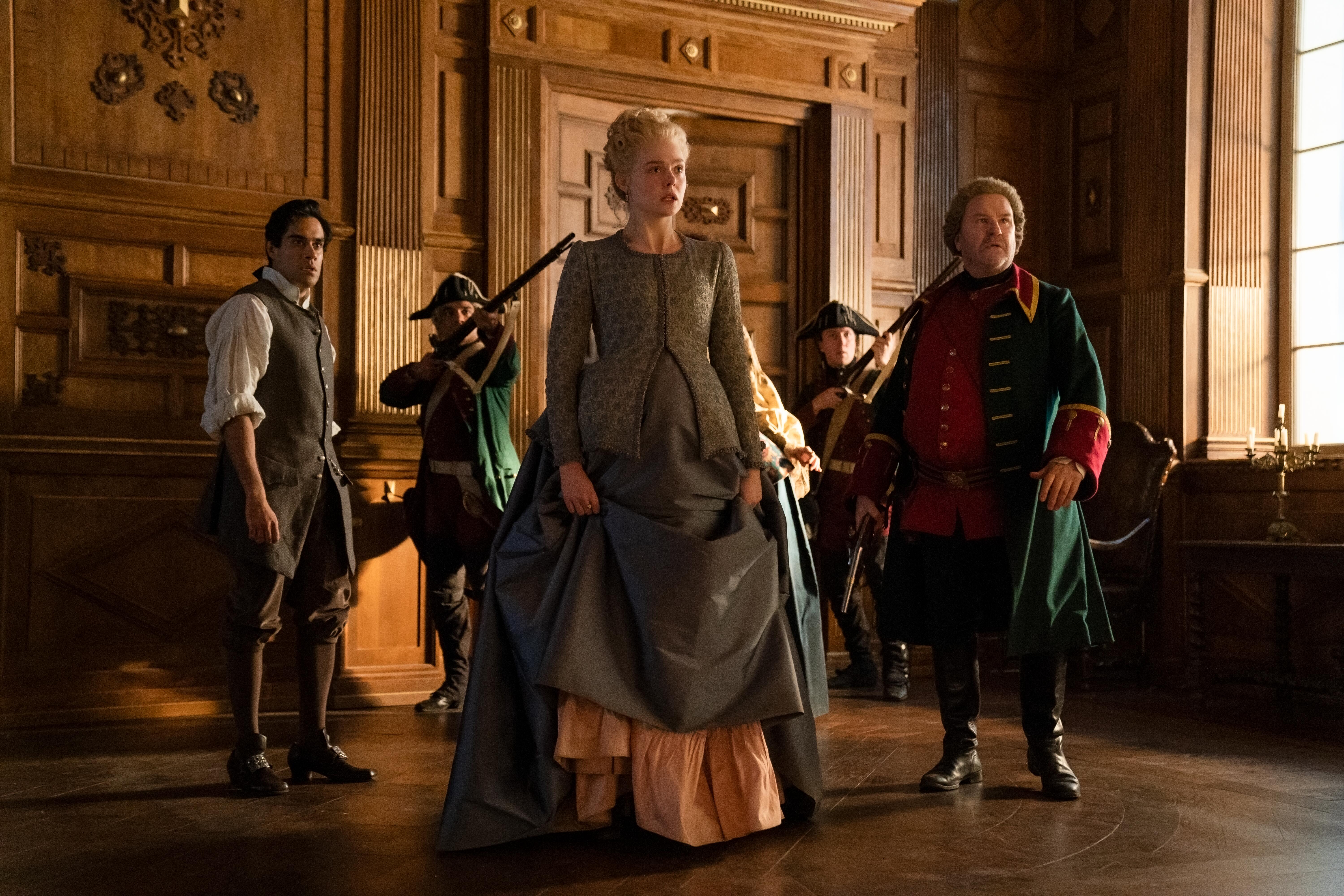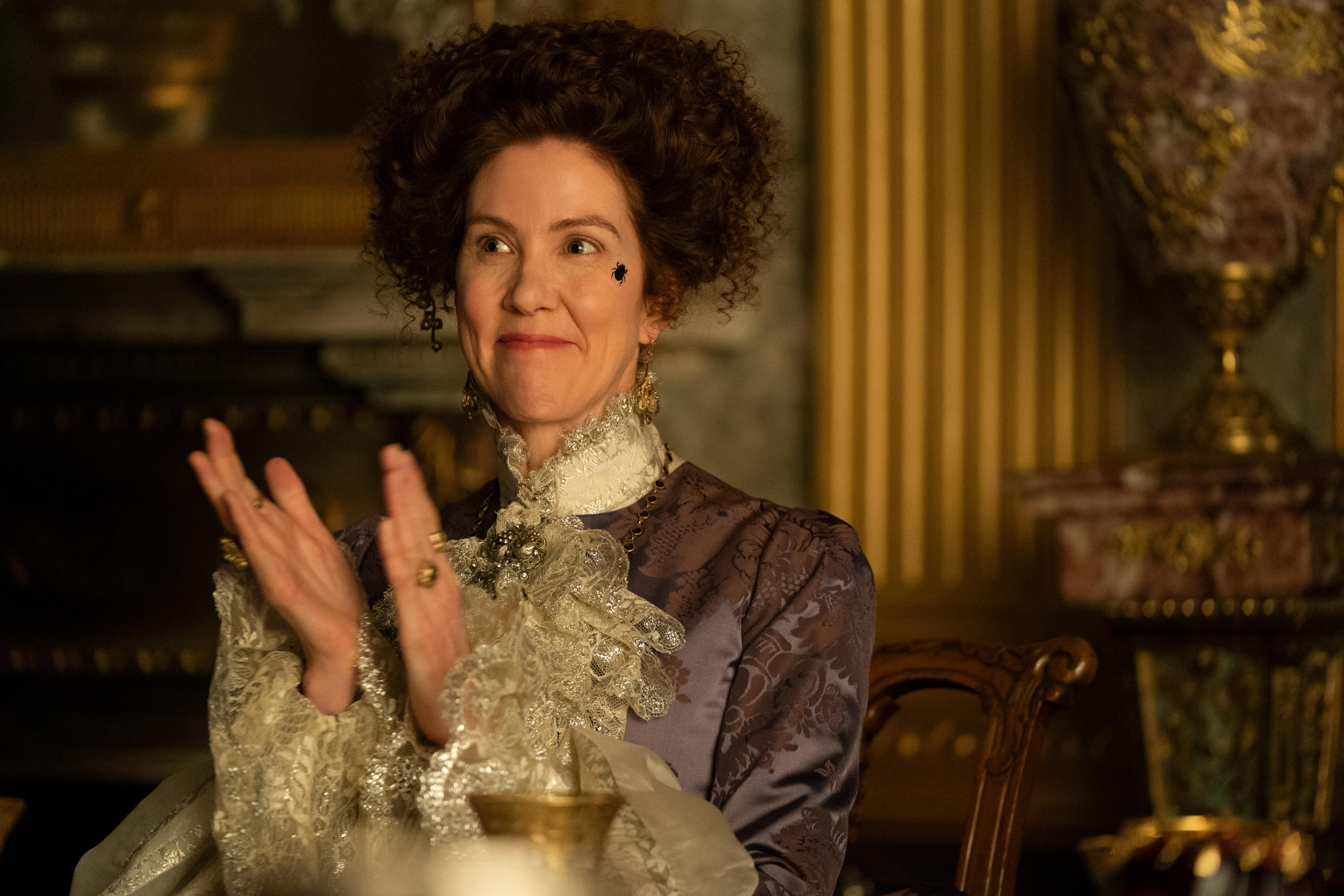Fact vs. Fiction: The Great season 2 episode 6, A Simple Jape
Did Catherine's boldest law change in The Great season 2 really happen?

Challenging the status quo in a meaningful way is something Catherine (Elle Fanning) has been promising since her arrival in Imperial Russia, which includes substituting impulsive violence for reason. The reaction to the crocodile in “Animal Instincts” is indicative of how quickly the court will revert back to the old ways that Peter (Nicholas Hoult) embodied but, rather than take a beat to figure out her next move, Catherine dives headfirst into an even grander scheme on The Great.
Catherine has barely got started on her ambitious “To Do” list and her ability to enact meaningful change is questioned by some of her youngest subjects. “Free the serfs” and “Outlaw violence” are the first two items on the agenda, but her attempt to do the first causes an increase in bloodshed in “A Simple Jape.” Marial’s (Phoebe Fox) time as a serf means she is more sympathetic to the plight of those less fortunate and she brought former roommate Shaky (Ninette Finch) into her plush apartment as her new maid — despite the shakiness that led to her nickname. What follows is an experiment to prove that anyone can be seen as a noble with the right backstory and wardrobe, however, Catherine’s attempt to subvert hierarchy and tradition has tragic consequences.
On the whole, The Great leans toward comedic representations when depicting the extremes of the past and this adds to the charm of the Hulu series. Nevertheless, it isn’t all lightness and the jape at the heart of this episode that leads to one of the most shocking TV moments of 2021. Shaky’s brutal murder is heartbreaking, while also emphasizing the creative choices that elevate the ambitious material.
We are going to separate fact from fiction in the second season of The Great. This episode-by-episode guide continues with a look at whether Catherine did abolish serfdom as she attempts in “A Simple Jape.” Plus, the role Catherine had in educating women.
What is a serf?

“A member of a servile feudal class bound to the land and subject to the will of its owner,” is how the term “serf” is defined and its original etymology is Old French — which is derived from the Latin servus (slave). In Russia, the feudal system meant the relationship between the nobles and peasants was one in which people were seen as being like property.
It is Catherine’s wish (in both the series and real-life) to abolish this practice that is akin to slavery. “It is against the Christian religion and justice to make slaves of men (who are born free)” biographer Virginia Rounding quotes from notes Catherine made in 1761 (the year before the coup) proving how integral this proposal was.
Did Catherine free the serfs?

When rumors start to swirl about Catherine’s plans to free 58 million serfs, Grigor (Gwilym Lee) and Arkady (Bayo Gbadamosi) take it into their own hands to make her plans known to the court. Orlo (Sacha Dhawan) has already warned her that a decree like this will take time and an announcement of this magnitude could lead to civil war. Unfortunately, when confronted with her plans (all 109 pages) she chooses to call the nobility’s bluff and announces the abolition of serfdom. However, when chaos and murder ensue within the Winter Palace she must walk back her mandate in a bid to restore order and structure.
The latest updates, reviews and unmissable series to watch and more!
In real life, it wasn’t until 1667 that Catherine’s extensive plans to create a better Russia were unveiled but they share similarities with those drawn up by her TV counterpart. Called the Nakaz (or Instruction), the 526-article treaty informed the nobility of the legislative plans Catherine wanted to enact. These ideas were based on (and occasionally plagiarized from) the work of philosophers like Voltaire and the majority of it was written in French. The document didn’t become law, but it did elevate Catherine’s reputation as an Enlightenment thinker — although her failure to free the serfs is a notable shortcoming. Her earlier notes also mentioned how difficult it would be to get landowners to agree to emancipate their serfs, and she was less inclined to headstrong decisions than Fanning’s Catherine. One idea was to do away with this practice gradually when a piece of land changed hands and she gave away 368,000 serfs over a 31 year period.
Catherine failed to free the serfs and it would take until 1861 before Catherine’s great-grandson Alex II abolished this feudal system.
Did Catherine establish a school for girls?

In The Great, Catherine quickly establishes a school for girls that takes a beat to have an impact because the parents don’t want to trouble their daughters with matters as trivial as an education — all that matters is if they marry well. Luckily, the girls have some autonomy and they are in awe of the new ruler. The youth are also quick to judge and they are unafraid to criticize the speed (or lack of) that the empress is enacting change. It is this dissent that causes Catherine's attempt to free the serfs.
Education is a cornerstone of Catherine’s grand plans and is mentioned in the notes the future Tsarina made in 1861 — which made reference to St Cyr in France. The St Cyr institution was founded in 1686 by Louis XIV’s wife, Madame de Maintenon, with the goal of educating young girls from impoverished noble families. In 1764, the Imperial Educational Society of Noble Maidens (that then became Smolny Institute of Noble Maidens of Saint Petersburg) opened as the first women’s educational institution in Russia — and was also Europe’s first public education institution. The decree that was signed by Catherine stated this school was established to “give the state-educated women, good mothers, useful members of the family and society." Lessons covered a broad array of academic and life skills including languages, religion, knitting, etiquette, arithmetic, history, and dancing.
The Great season 2 is available to stream (in its entirety) on Hulu in the US. In the UK episodes air weekly on Channel 4 in the UK.
More The Great Fact vs Fiction
- The Great season 2 episode 1 Fact vs Fiction: Head's It's Me
- The Great season 2 episode 2 Fact vs Fiction: Dickhead
- The Great season 2 episode 3 Fact vs Fiction: Alone At Last
- The Great season 2 episode 4 Fact vs Fiction: The Devil’s Lunch
- The Great season 2 episode 5: Fact vs. Fiction, Animal Instincts
- The Great season 2 episode 7: Stapler — Fact vs. Fiction
- The Great season 2 episode 8: Five Days — Fact vs Fiction
- The Great season 2 episode 9: Walnut Season — Fact vs Fiction
- The Great season 2 episode 10: Wedding — Fact vs Fiction
The Great season 2 is available to stream (in its entirety) on Hulu in the US. In the UK episodes air weekly on Channel 4 in the UK.
More The Great Fact vs Fiction
- The Great season 2 episode 1 Fact vs Fiction: Head's It's Me
- The Great season 2 episode 2 Fact vs Fiction: Dickhead
- The Great season 2 episode 3 Fact vs Fiction: Alone At Last
- The Great season 2 episode 4 Fact vs Fiction: The Devil’s Lunch
- The Great season 2 episode 6: A Simple Jape — Fact vs. Fiction
- The Great season 2 episode 7: Stapler — Fact vs. Fiction
- The Great season 2 episode 8: Five Days — Fact vs Fiction
- The Great season 2 episode 9: Walnut Season — Fact vs Fiction
- The Great season 2 episode 10: Wedding — Fact vs Fiction
The Great season 2 is available to stream (in its entirety) on Hulu in the US. In the UK episodes air weekly on Channel 4 in the UK.
More The Great Fact vs Fiction
- The Great season 2 episode 1 Fact vs Fiction: Head's It's Me
- The Great season 2 episode 2 Fact vs Fiction: Dickhead
- The Great season 2 episode 3 Fact vs Fiction: Alone At Last
- The Great season 2 episode 4 Fact vs Fiction: The Devil’s Lunch
- The Great season 2 episode 5: Fact vs. Fiction Animal Instincts
- The Great season 2 episode 7: Fact vs. Fiction, Stapler
- The Great season 2 episode 8: Fact vs. Fiction, Five Days
- The Great season 2 episode 9: Fact vs. Fiction, Walnut Season
- The Great season 2 episode 10: Fact vs. Fiction, Wedding
Emma Fraser spends most of her time writing about TV, fashion, and costume design; Dana Scully is the reason she loves a pantsuit. Words can also be found at Vulture, Elle, Primetimer, Collider, Little White Lies, Observer, and Girls on Tops. Emma has a Master’s in Film and Television, started a (defunct) blog that mainly focused on Mad Men in 2010, and has been getting paid to write about TV since 2015. It goes back way further as she got her big start making observations in her diary about My So-Called Life’s Angela Chase (and her style) at 14.


